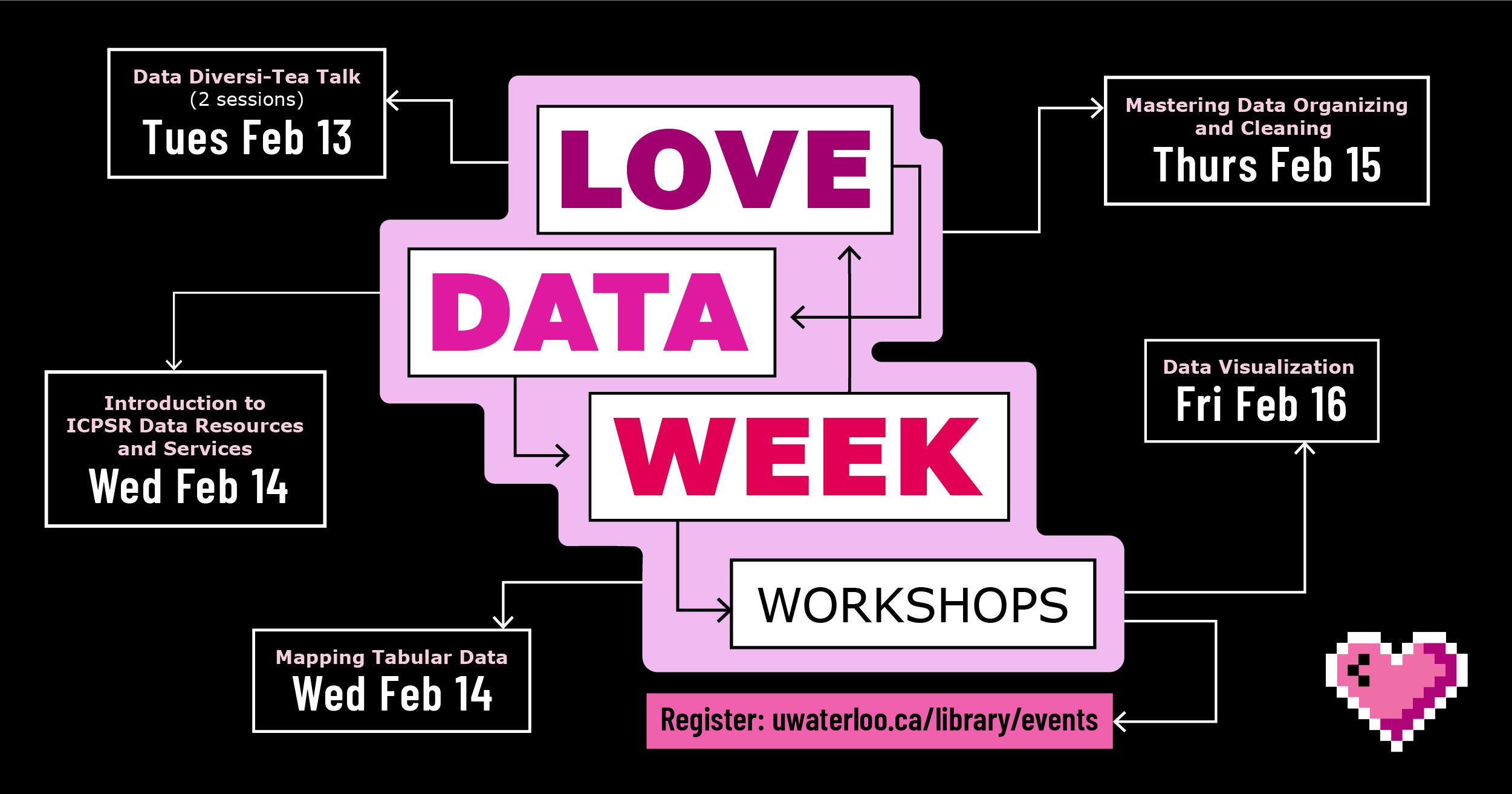
Not sure what Love Data Week is and what it has to do with the Library? We’re turning to Digital Scholarship Librarian Antonio Muñoz Gómez and Research Data Management Librarian Anneliese Eber to tell us more about it and how it can help you with your research.
Q1: What is Love Data Week?
Love Data Week is an international celebration of data that takes place every year during the week of Valentine’s Day. The aim of this week is to celebrate data in all its forms, promote good research data management strategies, share data success and horror stories, and ask hard questions about the role of data in our lives. This year's theme is "My Kind of Data".
At the University of Waterloo, we’re hosting a series of workshops to explore the diverse types of data people create and use, and the many ways they use it.
Q2: Why does the Library participate in Love Data Week?
Although you might not think about the Library when you’re looking for places on campus to help with data-related tasks, we provide access to a number of data-related resources as well as expertise! From project planning to data collection to data sharing and publishing, the Library can support you on your data journey.
By participating in Love Data Week, we’re spotlighting the Library’s research data management expertise, resources and programs that are available to our campus community. Our librarians and staff understand the research process at every stage and can help you make informed decisions when it comes to data that will, in turn, make research more transparent, shareable and reproducible.
Q3: Can you share an example of how the Library supports the use of digital tools in the research process?

We also offer consultations to our campus community to support the planning of digital projects, research and outputs. For example, we have worked with graduate students wanting to use an API to scrape Twitter data, or use SPARQL to query data from Wikipedia to do network analysis and visualization of the relationships among various music genres.
Digital projects like these are very exciting, so much so that we might easily forget to think about all the data that we are generating at each stage and how that data could support our findings, who should have access to it, how we can protect the privacy of others, and many other questions. Our library experts can help researchers navigate these considerations as they plan their digital projects.
Ideally researchers and students should reach out to the Library as early as possible in the process so we can help them make decisions that will make their lives easier down the line. Sometimes it might be possible to do some data and/or metadata remediation after the fact, but often that is not an option without allocating a lot of resources to the process. By planning ahead, we can avoid the need for remediation!
Q4: Can you share an example of how the Library supports research on campus through our research data management services and expertise?

Data management planning can get overlooked in the excitement of starting a new research project. We encourage researchers and students to reach out to the Library as early as possible in the process, but we understand that sometimes it doesn’t happen until later. No matter what stage of a research project you’re at, the research data management team at the Library can provide guidance on how to best manage your data (and make your lives easier in the long run!) while also meeting funder and publisher requirements.
If you want to learn more about research data management, reach out to Anneliese Eber. If you are thinking about a digital project, reach out to Antonio Muñoz Gómez.